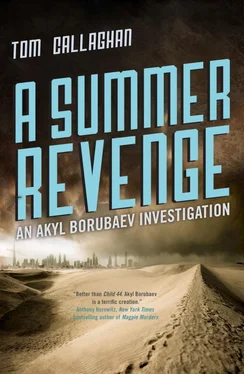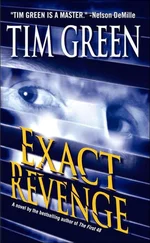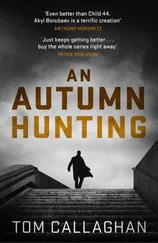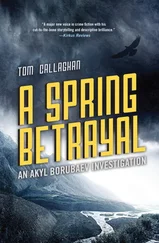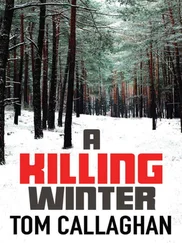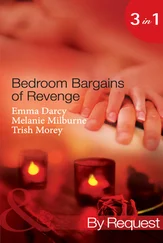“You’ve probably guessed I’m not here for the water parks either,” Saltanat said, taking another cautious sip of her wine. From her expression, the second taste was no more enticing than the first.
“Back in Tashkent we got word that a Chechen group was here in Dubai trying to raise money to buy weapons and keep hostilities with the Russians bubbling along.”
I nodded. Over the years there have been some terrible incidents involving the Russians and Chechens: the Beslan school siege, the Moscow theater crisis, the seizure of a hospital and its staff and patients in Budyonnovsk, all with massive loss of life. Terrorist acts or the brave actions of freedom fighters, depending on which side of the bloodstained ground you crouched down on.
I was no lover of the Soviet Union when it was around, but I don’t believe in slaughtering innocent people in the name of independence either. By and large, we Kyrgyz get on reasonably well with the Chechens in our country. They arrived after being deported from Chechnya by Stalin in 1944, who was afraid they would collaborate with the Nazis. Many of them died on the long train ride to Bishkek. We Kyrgyz also had our share of shit from Stalin, and so we were prepared to accept the Chechen people. Not that Stalin gave us any choice in the matter.
“So what has that got to do with you?” I asked. “You’re Uzbek, not Russian or Chechen. It’s not your fight.”
Saltanat gave me the kind of look a teacher wears when explaining something perfectly simple to a particularly stupid pupil.
“Russia has helped Uzbek intelligence in the past. Information, tip-offs, that sort of thing. So we owe them. And besides,” she added, “who doesn’t want to stay friends with the biggest boy in the playground?”
I nodded. In Central Asia realpolitik is what counts. And if you’re the one with the big stick, you can make sure everything goes your way.
“And the people I’m talking about,” Saltanat continued, “sure, it’s Chechen liberation they’re primarily interested in, but spreading unrest in my country and yours, it’s all a part of their jihad—spreading extremism, destroying decadence and the influence of Western values. No home without a prayer mat, no god but God; believe in the power of Islam or face the music, if any is allowed. So it’s a threat to us, not just the Russians.”
I splintered more ice.
“So you were sent here to track them down?”
“No, I was sent to eliminate them.”
Wet work. Easier to dispose of your enemies than to argue with them. Prison doesn’t work because it simply allows them to recruit more followers. If you’re trapped in one of the shit holes we call prisons in Central Asia, then the promise of a new caliphate, a new world, can be very appealing.
I spat the last of the ice back into my glass, stood up, felt my muscles pull where I’d rolled across the floor after the rifle shot.
“I’d love to help, but I’m only going to be in Dubai for a couple more days. And, as you say, I’m here on business of my own.”
I reached over, stretched out my hand. I knew that Saltanat wasn’t going to do anything as revealing or vulnerable as kissing my cheek.
“You don’t think this is more important? Stopping international terrorism, as opposed to getting Tynaliev out of the shit?”
I could tell by the impassive gaze with which Saltanat blasted me that she considered my priorities short-sighted, weak and probably self-serving. So did I. But I know my limitations; it’s taken me long enough to discover them.
“You blocked me, so I can’t call you,” I said. “But if you want to call me, perhaps we can meet again before I go?”
“Drinks and dinner? A weekend romance?” Saltanat said, and I could hear pity as well as scorn in her voice.
I shrugged; two can play the cynicism game.
“I could maybe give you a little help,” I said, “if my work here goes according to plan.”
Saltanat nodded. Perhaps the wheels in her head were revolving and telling her that any assistance on foreign turf was better than none.
“There’s a player I’m looking for. Here in the city, a contact point for the group. A Chechen, obviously—they play everything by ethnic loyalty. It’s not his real name but he calls himself Kulayev. Salman Kulayev.”
An image flashed in my mind: coffee at Burjuman, a man, balding, brown eyes, late thirties, white shirt, blue chinos. One of the benefits of cop memory. It looked as if a simple find-and-retrieve mission was really a lot more complicated than I’d first thought. Maybe sharks swam beneath the surface of a peaceful lagoon, wolves lay in hiding for the flock of sheep to stray too close. Perhaps Tynaliev had set me up, tethered me to attract predators.
I knew that Saltanat would want whatever information I had, whatever leads I could offer. And I knew that I wouldn’t give her anything until my role in all of this became a lot clearer. I’ve learned the hard way that one-way trust is just self-interest wearing a false smile. And nothing breeds trouble quicker than distrust. But then again, I reassured myself, trouble is what I’ve always been all about.
I made the call on my way back; it was time to stir things up and see what bubbled to the surface. I told Kulayev that I’d found Natasha, which was true, and that she’d agreed to hand over whatever it was she’d taken back to Tynaliev, which wasn’t.
“Did you find out what she’d taken?” he asked, and I could hear the hunger in his voice.
“I didn’t ask. The less I know, the safer I am,” I lied. Sometimes my job is like playing chess in the dark. You can tell which piece is which by touch—the curve of the bishop’s miter, the mane on the knight’s horse—but you can’t tell whether you’re playing black or white.
I arranged to meet Kulayev in the Denver Hotel. I hadn’t told him I’d changed hotels, and I was hoping he didn’t know. In the back of the taxi, out of sight of the driver, I checked the Makarov. So far I hadn’t needed to fire it, but that moment might be on its way.
I then called Natasha, using the mobile number she’d given me, told her to wait for me at her apartment, not to open the door to anyone except me. I could tell the tone of my voice scared her, told her that things were getting serious.
At the Dôme coffee shop in Burjuman I called Kulayev, told him there’d been a change of venue, that I’d wait twenty minutes for him and no longer. That meant he didn’t have time to set me up. I found a quiet booth, sat with my back to the wall, ordered something called an Americano, put my gun under an artfully arranged copy of the local newspaper. If Kulayev asked, I could always tell him I was practicing my Arabic.
I wasn’t sure what exactly I wanted to find out from Kulayev; it’s only by asking the questions that don’t matter that you unearth the ones that do. It’s a kind of archaeology, scraping away at the surface litter and debris to uncover the bones underneath.
The minutes raced by at glacial speed. I’d drained my coffee cup, decided against drinking another in case my hands shook just when I needed them when Kulayev appeared. As far as I could tell, he hadn’t brought any friends with him. I felt charged, the kind of exhilaration you get when the mists of a case start to disperse and you begin to see where the path might take you.
“Everything I was told about you is true, Inspector Borubaev,” he said, sitting across the table from me, beckoning a waitress over, pointing to my cup and holding up two fingers. I didn’t bother to say I didn’t want another; I didn’t think we’d be talking long enough for that.
The coffee arrived. “I’m sure the minister will be delighted to hear the news, if you haven’t already informed him,” Kulayev said, sipping at his coffee, giving an expert’s nod of approval. “The girl will be accompanying you back to Bishkek?” he continued. “I’m sure the minister will want to discuss these unfortunate events with her in person.”
Читать дальше
